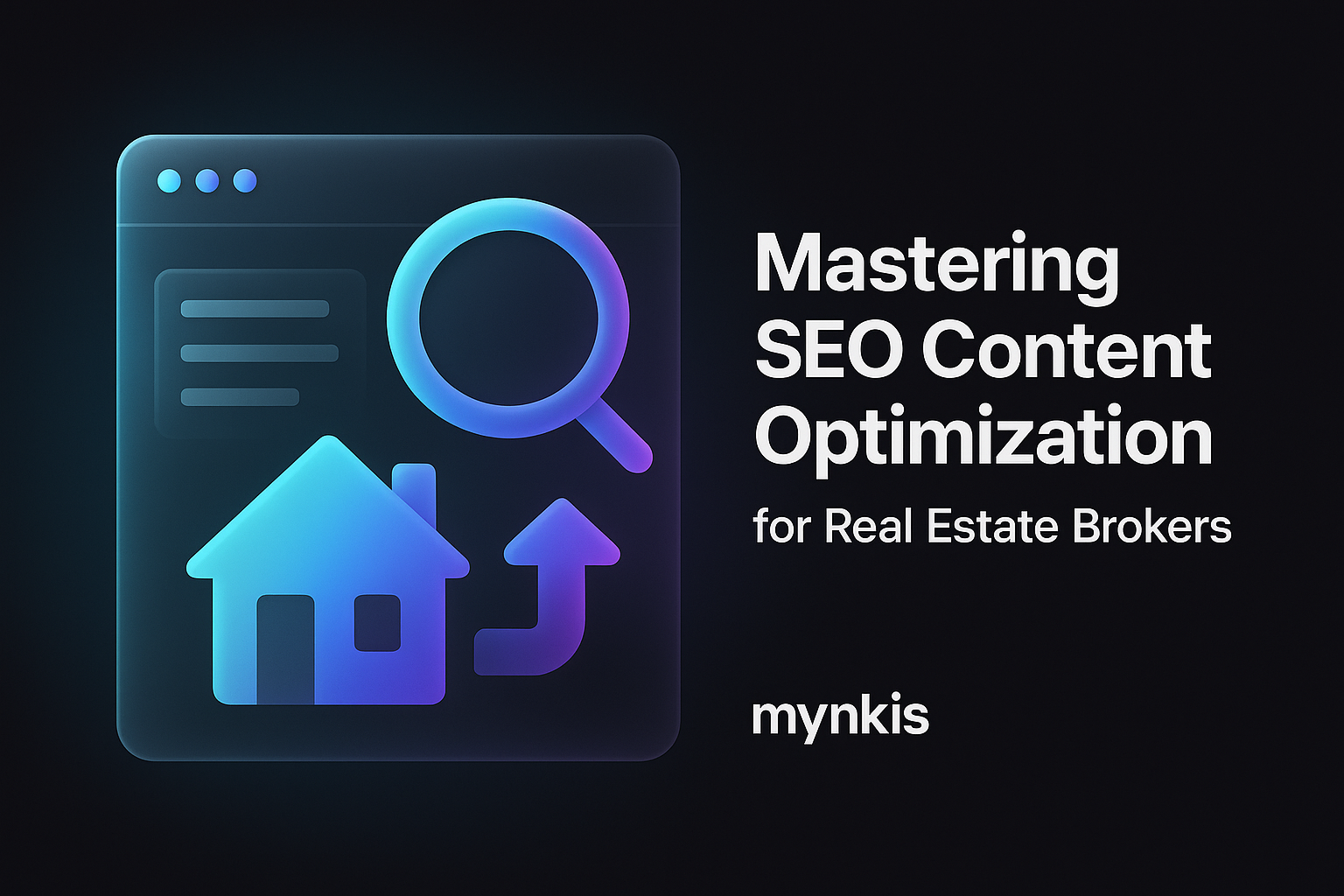Schedule a Demo
In the world of real estate, understanding the nuances of local SEO can transform the visibility of your property listings. I've seen firsthand how brokers who optimize their listings for local queries can significantly increase traffic to their sites, leading to more inquiries and, ultimately, more sales. With tools like Google My Business and local keywords, you can tap into a market hyper-focused on their area's inventory.
Creating an effective content strategy for SEO requires a delicate balance of keywords, engagement, and providing value to your readers. Start by identifying the primary search terms local buyers use. Phrases like "condos for sale in San Diego" or "downtown LA real estate" are gold for a broker aiming to catch those eyes. Remember, too, the value of longer-tail keywords, which, while they may attract less traffic individually, often convert at higher rates because they're more specific.
The quality of your content dictates how long a visitor stays on your page, which in turn affects your search rankings. My experience has taught me that detailed descriptions of properties, coupled with eye-catching visuals and insightful neighborhood guides, can make a listing irresistibly shareable—and those shares can boost your SEO substantially. Additionally, consistency in posting fresh content keeps your website relevant and can lead to better crawling rates by search engines.
On-page SEO elements are the building blocks of your website's SEO framework. Headers, meta descriptions, and URLs are crucial in telling search engines what your page is about. Use H1 tags for main titles, H2 and H3 for subheadings, and include keywords within your meta descriptions without stuffing them. Remember, user experience plays a part here—make sure these elements are not just for search engines but are informative and useful for the viewer as well.
With over half of global website traffic coming from mobile devices, mobile optimization is non-negotiable. I've worked with countless brokers who have seen their rankings improve once their sites are properly mobile-friendly. This goes beyond a simple responsive design; content must be tailored for smaller screens with easier navigation, quicker load times, and clear calls-to-action.
Location is everything in real estate, and the same applies to your SEO strategy. Use location-specific keywords throughout your site to target users looking for properties in their area. Integrating phrases like "homes for sale near me" or "apartments in Oakland" into your content and meta tags aligns your listings with what potential buyers are searching for, leading to more organic visits.
Backlinks remain a cornerstone of effective SEO. High-quality backlinks from reputable real estate blogs, local business directories, and community websites signal to search engines that your site is a trusted source of information. I encourage brokers to engage in the local community, perhaps through sponsoring events or contributing guest posts, to earn these valuable links.
Without tracking your SEO efforts, you're navigating without a compass. Use tools like Google Analytics to monitor traffic, source analysis, and keyword performance. Regularly review these metrics and adjust your strategy based on what the data tells you—SEO is an iterative process, and those who stay vigilant will see the best results over time.
Property descriptions offer a unique opportunity to optimize for SEO. They should be thorough but concise, featuring key details that buyers are looking for. Add a sprinkle of keywords related to the property and location, ensuring they flow naturally into the narrative. In my experience, descriptive yet keyword-optimized listings generate more engagement and, therefore, enhance search visibility.
The rise of video content in SEO cannot be ignored. Videos, especially virtual tours of properties, engage users and can lead to longer dwell times on your site. Integrating keywords into video titles, descriptions, and tags increases their searchability. And let's be real, in a world where more buyers start their search online, an engaging video can be the tipping point for their decision to visit in person or make an offer.
User engagement metrics like bounce rates, time on site, and pageviews directly influence SEO. A compelling call-to-action, interactive elements, and regularly updated content can significantly improve these metrics. In my experience, when users engage more deeply with your site, search engines interpret this as a signal that your content is valuable, boosting your site's ranking potential.
Don't underestimate the SEO power of your images. Properly optimizing your images by using descriptive, keyword-rich filenames and ALT tags can increase your site's visibility. Ensure these images are compressed to not slow down your page load times, as slow websites can negatively affect user experience and SEO rankings.
Blogging about local real estate trends, market analyses, and home buying tips not only helps to establish your authority in the industry but also bolsters your SEO efforts. By targeting long-tail keywords relevant to your area and demographic, you can draw in more focused traffic. Blogs that align with what local buyers are searching for, from school districts to local attractions, serve as content-rich magnets for organic searches.
Community involvement does wonders for your local SEO. Whether it's through local events, partnerships with other businesses, or participating in online forums, establishing a presence where your potential clients are socializing can lead to local backlinks and increased visibility. Real-life engagement translates into SEO wins—people talking about your service can be just as powerful as the keywords on your page.
SEO is a dynamic field that evolves with algorithm updates, user behavior changes, and technological advancements. Stay informed through reputable sources like Moz or Ahrefs, and continue learning how to better serve your website visitors. What's effective today may change tomorrow, so adaptability is key to maintaining and improving your search rankings in the long run.
